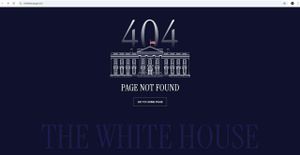Internal divisions within the Christian Democratic Union (CDU) have become increasingly pronounced as the party navigates sensitive migration policy votes. This week, the Bundestag witnessed extended debates about the CDU's proposed migration reforms, culminating in several members abstaining from key votes, signaling significant dissension among party ranks.
Two CDU lawmakers, Annette Widmann-Mauz and Roderich Kiesewetter, opted out of voting on the party's stringent migration law, which aimed at reshaping the country’s immigration framework. The failure to achieve consensus within the party reflects broader concerns over alliances, particularly with the right-wing Alternative for Germany (AfD), whose support enabled the passage of the CDU's legislative proposal.
According to reports, Widmann-Mauz stated, "Despite supporting the content of the Union's bill, I consciously chose not to participate for personal reasons." She articulated her concerns about aligning with the AfD, emphasizing her commitment to upholding democratic values and historical responsibilities associated with Germany's past. "A collaboration with the AfD, already regarded as partly far-right, was out of the question for me," she affirmed.
The CDU's recent efforts under the leadership of Friedrich Merz to enforce stricter immigration controls have met with mixed reactions, especially after their five-point plan achieved majority support, primarily through votes from the AfD, FDP, and some independent lawmakers. This unprecedented collaboration has ignited fierce criticism from both within and outside the CDU, with many condemning any partnership with the AfD.
Thorsten Frei, CDU’s parliamentary manager, predicted tight parliamentary margins for the vote, commenting, "I believe it will be very, very close." He acknowledged the dissent within the CDU ranks, especially from those who fear the political consequences of aligning with far-right factions. Analysts are concerned about the ramifications such alliances may have on the political identity of the CDU moving forward.
Demonstrations erupted across various cities, including Freiburg, where approximately 15,000 protested against the CDU's policy shifts. Activists expressed fears over the potential normalization of far-right ideologies within mainstream politics, explicitly calling for the Union to cease its cooperation with the AfD.
The political climate surrounding migration policies is turbulent, reflecting wider societal debates on immigration and integration. Many party members are distressed not just over the potential policy impacts but also over the party’s shifting values, fearing it may stray from its centrist foundation.
Former Chancellor Angela Merkel’s critique of the current path taken by the CDU adds another layer of complexity to the situation. She described the collaboration with the AfD as "wrong," aligning with voices from both the SPD and the Greens, who condemned the CDU's recent maneuvers as compromising democratic integrity.
Such sentiments were mirrored by multiple party members, who insist on the necessity for the CDU to engage with centrist parties like the SPD and the Greens to craft comprehensive and humane migration policies instead of forming alliances with far-right groups.
The proposed law, referred to as the "Zustrombegrenzungsgesetz," aims to implement strict rules to mitigate immigration flows, including measures such as halting family reunifications for individuals under subsidiary protection and increasing authority for the federal police to pursue deportations. While the proposal successfully obtained support from various factions, it still faces significant hurdles, especially from the Bundesrat, where approval from even CDU-led states seems unlikely.
This whole episode raises pressing questions about the CDU's identity and priorities. Will the party continue down this path of aligning itself with the AfD? Or can it reclaim its traditional moderate stance and seek bipartisan solutions to complex migration issues? The coming weeks and months will be instrumental as the CDU grapples with its internal tensions and public perception.
Only time will tell whether the CDU can reconcile its internal divisions or if it will continue to witness the rise of factions within, potentially leading to irreparable schisms. Critically, the political ramifications of these decisions will reverberate throughout German politics, as mainstream parties navigate the treacherous waters of public sentiment on immigration and far-right politics.



